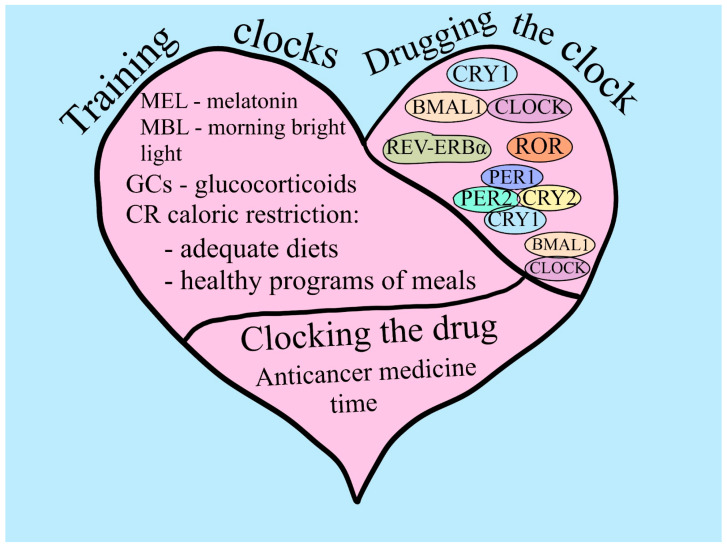Figure 5.
Chronobiological methods for preventing and treating cancer and its associated disorders. Different diseases can be the result of disruptions to the circadian rhythm. Thus, a deeper understanding of the relationship between the two may prevent cancer. In this way, three categories of chronotherapeutic therapies are important. (1) Clocking the drugs: maximizing drug timing to enhance efficacy and minimize negative side effects; circadian rhythms significantly impact the pharmacokinetics and pharmacodynamics of medication responses. The effectiveness and bioavailability of the medications are influenced by rhythmic changes, which might range from drug absorption to target receptor expression. (2) Administering the clock: using small-molecule drugs that specifically target a circadian clock. (3) Training the clock: appropriate strategies to improve or sustain a healthy circadian periodicity in feeding–fasting, sleep–wake, or light-dark cycles.

